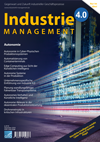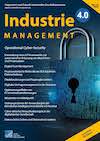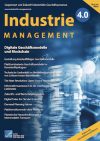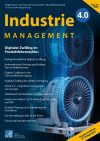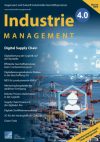@Article{Gronau,
Year= "2018",
Number= "6",
Volume= "34",
Pages= "7-12",
Journal = "Industry 4.0 Management",
Title= "Der angemessene Grad von Autonomie in Cyberphysischen Produktionssystemen",
Author= "Norbert {Gronau}",
Doi= "https://doi.org/10.30844/I40M_18-6_7-12",
Abstract= "Existierende Fabriken weisen häufig hierarchische Strukturen bei Entscheidungsfindung und Steuerung auf. Cyberphysische Systeme ermöglichen es prinzipiell, den Grad an Autonomie bei Entscheidungsfindung und Steuerung zu erhöhen. Unklar ist allerdings bisher weitgehend, bis zu welchem Grad Autonomie tatsächlich nützlich ist. Dieser Beitrag differenziert unterschiedliche Definitionen von Autonomie und Ansätze, diese zu erreichen. Erste experimentelle Erkenntnisse in einer Laborumgebung helfen, die aufgestellten Fragen zu beantworten. ",
Keywords= "Autonomie, Produktionssystem, Berechnungsverfahren, Cyber-physisches System, Simulation",
}

 Deutsch
Deutsch
